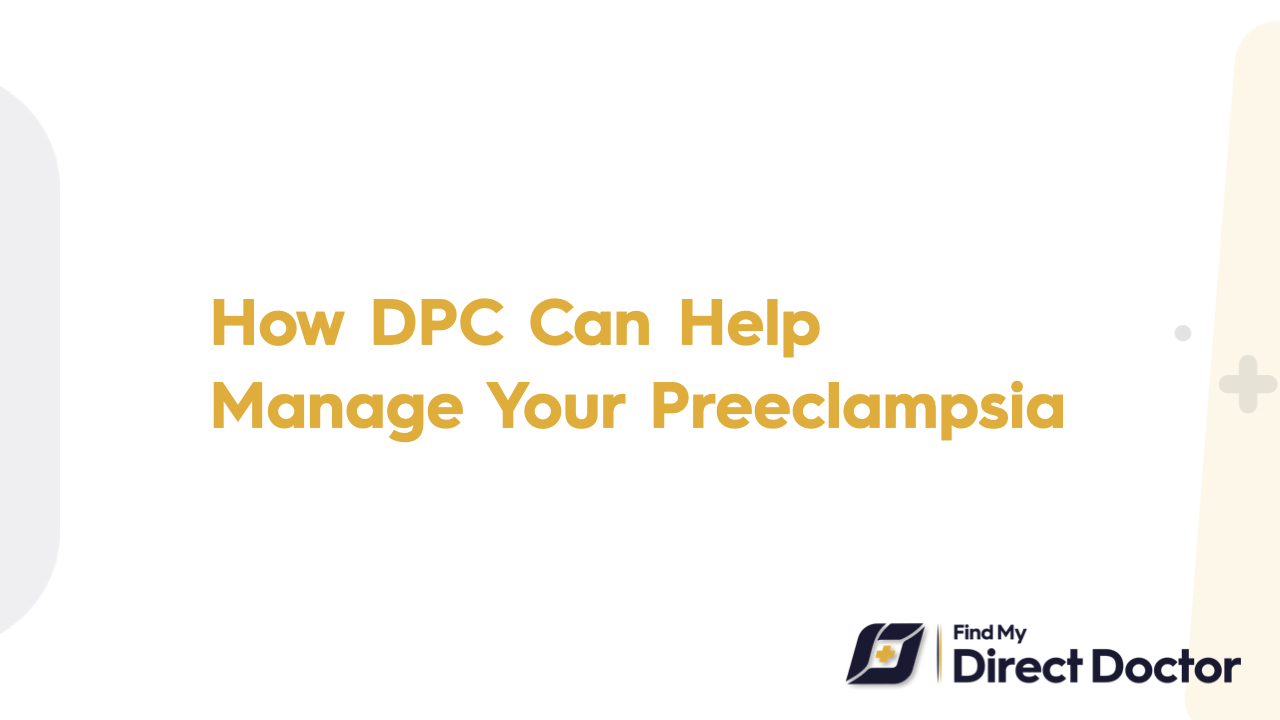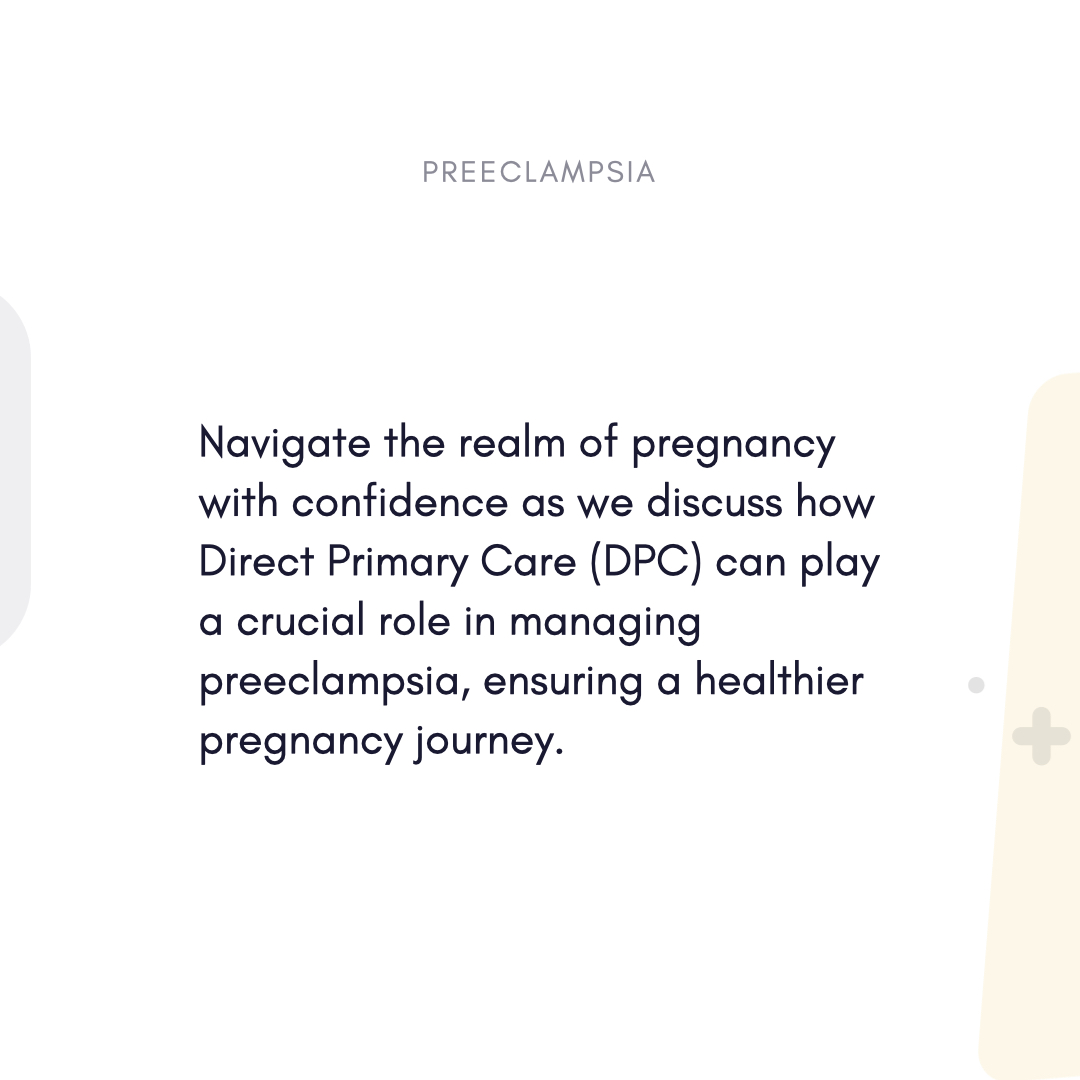Preeclampsia and Direct Primary Care (DPC): Protecting Moms and Babies with Vigilant, Personalized Care
Unexpected swelling of your hands and face. A headache that won't go away. For 5–8% of pregnant women with preeclampsia, this dangerous blood pressure condition compromises mother and child. Though there is hope: Direct Primary Care (DPC) offers around-the-clock monitoring and coordinated treatment to catch preeclampsia early and avoid complications. Traditional care often means frantic ER trips and fractured follow-ups.

Grasping Preeclampsia
Usually starting after 20 weeks, preeclampsia is a pregnancy-specific hypertension condition marked by:
- High blood pressure, at least 140/90 mmHg
- Protein in urine or new organ malfunction (liver, kidneys, brain)
- Strong characteristics: Headaches, changes in vision, epigastral pain
Risks should treatment be taken under consideration:
- Eclampsia, often known as seizures,
- HELLP syndrome, or low platelet, liver failure
- Preterm delivery, restricted fetal development
The American College of Obstetricians and Gynecologists (ACOG) advises timely delivery and rigorous blood pressure monitoring.
DPC Changes: Treatment for Preeclampsia
Operating on a membership model usually ranging from 100 USD to 200 USD per month, Direct Primary Care (DPC) provides unlimited access to your doctor for a set fee. For those with preeclampsia, this translates into no co-pays, no prior authorization delays, and a care plan as alert as your blood pressure readings.
1. Early Discovery and 24-hour Surveillance
DPC's approach guarantees:
- Home BP cuff rentals including daily telehealth check-ins.
- Same-day lab draws including liver function tests and urine protein/creatinine ratios.
- For severe symptoms or for fetal lung maturity, IV magnesium or steroid injections provide immediate intervention.
2. Individualized, Guideline-Driven Treatment
DPC doctors design customized plans compliant with ACOG guidelines:
- Medication management: For BP control, labetalol or nifedipine.
- Weekly NSTs or BPPs via Cash-Pay Ultrasound partners.
- Coordinating with MFMs will help to ensure best delivery timing.
3. Complete, Reasonably Priced Support
DPC lowers health and financial risk by:
- Medication costs: Anti-hypertensive wholesale pricing.
- 24-hour telehealth access allows one to manage visual changes or headaches without ER visits.
- Monitoring BP for six weeks following delivery will help to prevent eclampsia.
DPC Benefits for Preeclampsia Patients
1. Unmatched accessibility
- Direct OB/MFM coordination: same-day visits for escalating conditions.
- Not one waits for labs or specialist referrals.
2. Customized Actions
- Low-dose aspirin preventative therapy starting at twelve weeks for high-risk pregnancies.
- Meal plans heavy in magnesium and DASH diet coaching provide nutritional support.
3. Open Affordable Cost
- Membership consists in BP cuffs, labs, and delivery planning—no hidden costs.
- Usually savings of 3,000 USD+ by avoiding ER visits and hospital readmissions.
Personal Success Stories from Real Life
- Case 1: 28 weeks later, Sarah, 32, developed preeclampsia. At 34 weeks, her DPC team set daily BP checks, steroid injections, and delivered via scheduled C-section. Mom and the baby both flourished.
- Case 2: Maria, 28, developed postpartum preeclampsia. Her DPC provider avoided readmission, prescribed labetalol, tracked her via telehealth.
FAQs: DPC and Preeclampsia
- Q: DPC can manage crises including eclampsia?
- A: Absolutely. DPC doctors make sure the NICU is ready, coordinate 911 transfers, and give magnesium en route.
- Q: Is DPC within reach for women without insurance?
- A: Surely. Early detection helps members avoid 10,000 USD+ NICU expenses and save on prenatal labs, ultrasounds.
- Q: Should I call for a specialist in maternal-fetal medicine?
- A: Working with top MFMs, DPC doctors guarantee same-week visits and cash-pay discounts.
Why DPC Helps Preeclampsia Patients Win?
Emphasizing DPC's alignment with care recommendations, the Preeclampsia Foundation supports:
- Early aspirin use in high-risk pregnancies is preventive.
- Tools for tracking blood pressure, symptoms, and fetal movements empower you.
- Trust: A consistent care team replaces disjointed, demanding OB rotations.
Get a Safer Pregnancy Travel Guide.
Preeclampsia need not rob you of happiness. Every step toward delivery and beyond, DPC helps you to find a partner who watches closely, acts forcefully, and champions your health.






